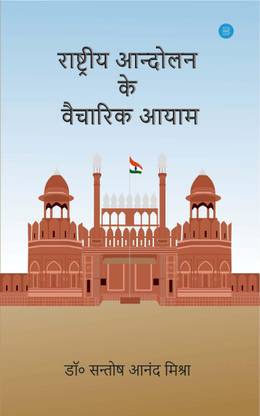Pankaj Udhas: An Eternal Voice of Indian Ghazal Singing (May 17, 1951 – February 24, 2024)
Family Background and Early Life
Pankaj Udhas was born on May 17, 1951, in Jetpur, a town in the Rajkot district of Gujarat, into a music-loving family. His father, Keshubhai Udhas, was an educated and art-loving man who played the instrument dilruba proficiently. This musical environment deeply influenced Pankaj and his brothers – Manhar and Nirmal – drawing them toward music. Manhar Udhas had already made a name in ghazal singing, serving as an inspiration for Pankaj.
Pankaj received his early education at St. Mary’s School in Rajkot, where he first participated in a music competition and won a prize for singing “Ae Mere Watan Ke Logon.” This event deepened his interest in music. He trained in Indian classical music under Guru Gopaldas and later enrolled at the Music College in Mumbai.
Career Beginnings and Shift to Ghazals
Pankaj Udhas began his musical career as a playback singer in Bollywood but didn’t achieve the recognition he aspired to in that field. He soon turned to ghazal singing, releasing his first album Aahat in 1980. The album’s success catapulted him to fame among ghazal lovers across India.
He became especially known for his live concerts, carving out a distinct identity through his stage performances. He mesmerized audiences in the USA, Canada, UK, the Gulf countries, and Africa. His voice touched hearts, and his concerts often drew large, enthusiastic crowds.
Albums and Innovation
Pankaj Udhas was among the first ghazal singers to bring the genre into the mainstream through albums. Some of his most popular albums include:
- Aahat (1980) – His debut and breakthrough album.
- Tarannum (1981) – A beautiful blend of deep melodies and poetic grace.
- Other significant albums: Mehfil, Shagufta, Sharab, Nazm, Saaye, Dastak, Muskaan, Rubai.
Through these albums, he presented Urdu poetry in melodious and accessible tunes. His ghazals were not merely songs but emotional experiences, and he truly lived each composition.
Iconic Ghazals: A Treasure of Art
Pankaj Udhas's ghazals touched on themes like love, longing, philosophy, social pain, and spiritual reflection. Some of his timeless ghazals include:
- “Chitthi Aayi Hai Watan Se Chitthi Aayi Hai” – From the 1986 film Naam, this became an emotional anthem for millions of Indians abroad.
- “Jeene Ke Liye Socha Hi Nahin Dard Sambhalne Honge” – A melancholic yet beautiful reflection on life’s truths.
- “Aap Jinke Kareeb Hote Hain, Woh Bahut Khushnaseeb Hote Hain” – A touching composition about love and luck.
- “Ab Ke Sawan Mein Shararat Yeh Mere Saath Huyi” – A perfect blend of romance and elegance.
- “Thodi Thodi Piya Karo” – A humorous and witty piece, popular in his live shows.
International Recognition and Stage Legacy
Pankaj Udhas served as a cultural ambassador of ghazal, performing thousands of concerts across countries like the USA, Canada, the UK, UAE, South Africa, Singapore, Malaysia, Nepal, and Fiji.
His live performances were marked by a calm voice, refined presence, and a deep connection with the audience. Attending his concerts was an emotional journey for many.
Popularizing Ghazals for the Masses
Traditionally, ghazals were confined to the elite, Urdu scholars, or literary circles. Pankaj Udhas broke this barrier, making the genre accessible to Hindi-speaking masses and younger audiences. He used simple lyrics, modern orchestration, and tuneful melodies to widen his appeal.
Social Contributions
Beyond music, Pankaj Udhas was involved in several charitable efforts. He organized charity concerts to support patients suffering from cancer, thalassemia, and AIDS. Through the Pankaj Udhas Cancer Foundation, he actively contributed to social causes.
Honors and Awards
His remarkable contributions to music earned him many prestigious accolades:
- Padma Shri (2006) – Awarded by the Government of India for excellence in the arts.
- Maharashtra Gaurav Award
- Kalakar Awards, West Bengal
- Lifetime Achievement Awards by various cultural organizations
- MTV Immies and other popular music honors
Stylistic Hallmarks
Key features of Pankaj Udhas’s singing style include:
- Emotional Depth – His ghazals were not just musical pieces but heartfelt expressions.
- Perfect Urdu Pronunciation – He maintained the linguistic elegance of the genre.
- Melodic Arrangements – Balanced traditional and modern musical elements.
- Innovation – He adapted new music technology while staying true to the essence of ghazals.
A Torchbearer of a Living Tradition
Pankaj Udhas wasn’t merely a singer – he was a custodian of India's musical heritage. He kept ghazal alive during a time dominated by pop and rap music. He stands as a golden chapter in the history of Indian music where poetry, melody, and emotion converge.
His music teaches us how to encapsulate love, pain, hope, and soulfulness into song. He was one of those rare artists whose ghazals aren’t just heard – they are felt.















0 Comments
Thank you